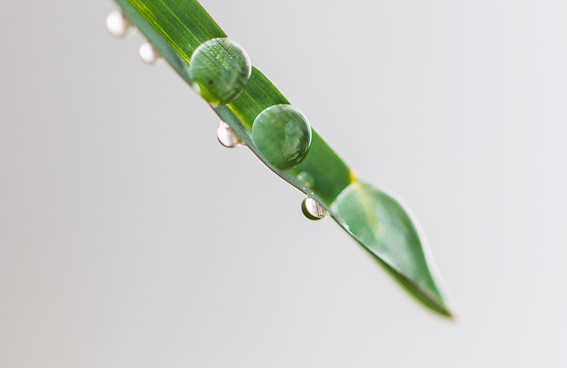There is so much conflicting information about parabens, you’re probably wondering what to believe. That’s why we created this easy-to-navigate FAQ with all the facts.
What is a paraben?
Parabens are a class of preservatives used in food, skin care and personal care products. They are esters of parahydroxybenzoic acid. Use of parabens in cosmetic products has been declining with reformulations, however you can identify parabens within the ingredient listing on a product label. Common parabens are listed as Methylparaben, Butylparaben, Isobutylparaben, Ethylparaben, Isopropylparaben or Propylparaben.
Are parabens safe?
Generally speaking, at the levels that they are used, parabens are considered to be safe. But there is a lot of controversy around this subject, specifically between paraben exposure, health effects and health risks and you’ll learn more as you read on.
Why are parabens used?
Parabens are used in beauty products, skin care, hair care and even some toothpastes and deodorants, to protect products (and you) from microbiological contamination. Preservation and product shelf life is extremely important when it comes to skin care products, especially moisturizers and creams used around the eyes. Bacterial contamination can cause severe irritation and can even lead to infection.
Why are parabens controversial?
In 2004, a study was released showing the presence of parabens in breast tumors. The online community quickly assumed that parabens cause cancer. The author later came forward and clarified that the intention of the study was to show that parabens can accumulate in the body intact, not that they cause breast cancer. However, by then, the damage was done, and the entire personal care industry had moved away from parabens.
Are parabens harmless?
Not entirely. Methylparaben is proven to accumulate in the skin and decrease cellular renewal, so it’s possible to disturb hormone function, triggering premature aging with continued use. Butylparaben has an estrogenic effect, acting as endocrine disruptors. They may bind to estrogen receptors, having unknown effects. Parabens, in general, are shown to sensitize the skin, especially when applied to damaged or broken skin. However, broken skin is already more sensitive, so this is not a surprising result.
If I’m not concerned about sensitivity, should I use them? Are there other paraben dangers?
The chemical structure of parabens may cause even the most adventurous product enthusiasts to opt out. For one, the paraben structure contains formaldehyde. Products sold in California that use parabens are required to display a Prop 65 warning, due to the presence of formaldehyde within the paraben chemical structure.
Parabens are also known to contribute to negative effects on the environment and certain parabens, like butylparaben, can kill coral. This has been a major environmental concern for some time now as they have been detected in fish and sediments when water is tested.
How do I avoid parabens?
It is not sufficient just to avoid words that include the word “paraben” on the ingredient list. You need to look for the words “Paraben Free” on the label. The reason for this is that parabens can hide in other ingredient blends. For example, a company may use a green tea extract that’s preserved with levels of parabens, and the parabens are at such a low percentage that they aren’t required to list them in the ingredient list. So, even though a product does not specifically list a paraben in the ingredient list, it’s important to confirm that products aren’t using individual ingredients preserved with parabens.
Certain retailers have removed or do not carry beauty, hair or personal care products that contain parabens, out of concern for their customers and several consumer product manufacturers have reformulated their lotions, conditioners and other items to remove any presence of parabens.
Should I avoid preservatives completely? Will I avoid paraben side effects by avoiding all preservatives?
No. Preservatives protect you from dangerous bacteria, and help to keep your products stable for a longer period of time. There are many paraben alternatives available, such as phenoxyethanol. Paraben alternatives can help to protect you without the potential negative side effects of parabens.
Now you have all the information you need to navigate this complex topic. A dermatologist can also help with questions or when choosing paraben-free products to avoid formaldehyde and promote healthy, beautiful skin, inside and out.
References:
-
Pedersen, S., Marra, F., Nicoli, S., & Santi, P. (2007). In vitro skin permeation and retention of parabens from cosmetic formulations. International journal of cosmetic science, 29(5), 361-367.
-
El Hussein, S., Muret, P., Berard, M., Makki, S., & Humbert, P. (2007). Assessment of principal parabens used in cosmetics after their passage through human epidermis–dermis layers (ex‐vivo study). Experimental dermatology, 16(10), 830-836.
-
Soni, M. G., Carabin, I. G., & Burdock, G. A. (2005). Safety assessment of esters of p-hydroxybenzoic acid (parabens). Food and chemical toxicology, 43(7), 985-1015.










